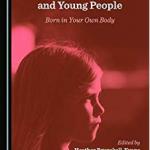Marion Ann Taylor and Agnes Choi (eds)
Handbook of Women Biblical Interpreters: A Historical and Biographical Guide
Grand Rapids, MI Baker Academic, 2012.
Available from Baker.
By Jill Firth
Help is to hand for those who are wishing to rectify the complaint “there are no women in my bibliographies!” Students keen to hear women’s voices and minority and global voices are gaining access to an increasing range of resources including the Handbook of Women Biblical Interpreters: A Historical and Biographical Guide which introduces 180 women biblical interpreters from the early church to the early Twentieth Century. The editors have limited contemporary authors so as not to drown out earlier voices, and have chosen only deceased authors whose work was representative and influential before the 1970s. The footnotes include many references to other studies of more recent feminine scholarship.
The Christian academic scene is shifting from only a decade ago, exemplified by Donald McKim’s Dictionary of Major Biblical Interpreters (2007) which cites over two hundred interpreters but only includes three women (Julian of Norwich, Elisabeth Schüssler Fiorenza, and Phyllis Trible).
The Handbook focuses on women whose writings are extant, but mentioning some whose writings are lost to us including Paula (d. 404) and Marcella (d. 410), both associates of Jerome. Few writings of women biblical interpreters from before the ninth century have survived. In the post-Reformation era, there are many works, including commentaries, by women. While a distinction between academic and popular theological writing can be helpful, Taylor notes that it is often the popular voices who have the most influence on a generation. Many women in the past lacked access to academia, the pulpit or the press, though some influential voices have been omitted even from academic treatments.
Some names are familiar to us, such as Teresa of Avila, Katharina Zell, Hannah More, Catherine Booth, some are known to us from other aspects of their lives, such as Elizabeth I, Florence Nightingale, Harriet Beecher Stowe, and Christina Rossetti, and others may be unknown, such as Gertrude the Great, Magdalena Beutler, and Bathsua Makin. The editors have included a range of theological viewpoints, not omitting controversial thinkers such as Jessie Penn-Lewis and Ellen Harmon White (Ellen G. White). Each entry includes biographical information, formative influences and an analysis of the interpreter’s work, identifying methods and themes, and giving examples. Mention is made of gendered exegesis, such as discussing women’s experiences or controversial passages. A bibliography of primary and secondary sources is included for each entry.
Marion Taylor wrote her (Yale) doctoral thesis on the history of Old Testament studies at Princeton Seminary from 1812 to 1929 under the direction of Brevard Childs. Her other writings include Marion Ann Taylor and Heather Weir, Let her Speak for Herself: Nineteenth-century Women Writing on Women in Genesis (2006); Marion Ann Taylor and Christiana de Groot, Recovering Nineteenth-Century Women Interpreters (2007); Marion Ann Taylor and Christiana de Groot, Women of War, Women of Woe: Joshua and Judges Through the Eyes of Nineteenth-Century Female Biblical Interpreters (2016); and Marion Ann Taylor and Heather Weir, Women in the Story of Jesus: The Gospels through the Eyes of Nineteenth-Century Female Biblical Interpreters (2016). Agnes Choi, the associate editor of the Handbook, is Associate Professor of New Testament at Pacific Lutheran University, with special interests in the ancient economy and in the parables of Jesus.
This volume is accessible and well written. The Handbook is organised alphabetically, for easy reference, but includes a chronological list of women interpreters from Faltonia Betitia Proba (ca. 320–ca.370) to Elisabeth Rice Achtemeier (1926–2002). Around 150 scholars have contributed the articles. In itself, the Handbook is a relaxing bedtime read. With its bibliographies for each entry, it is a valuable map for students, libraries, lecturers and anyone interested in extending their sources of reading and reflection on Scripture. Highly recommended!
Jill Firth is a Lecturer in Hebrew and Old Testament at Ridley College in Melbourne and holds a PhD in Psalms studies. With a team of women from Ridley, she organises Evangelical Women in Academia, an annual conference based at Ridley College to promote women’s scholarship.












